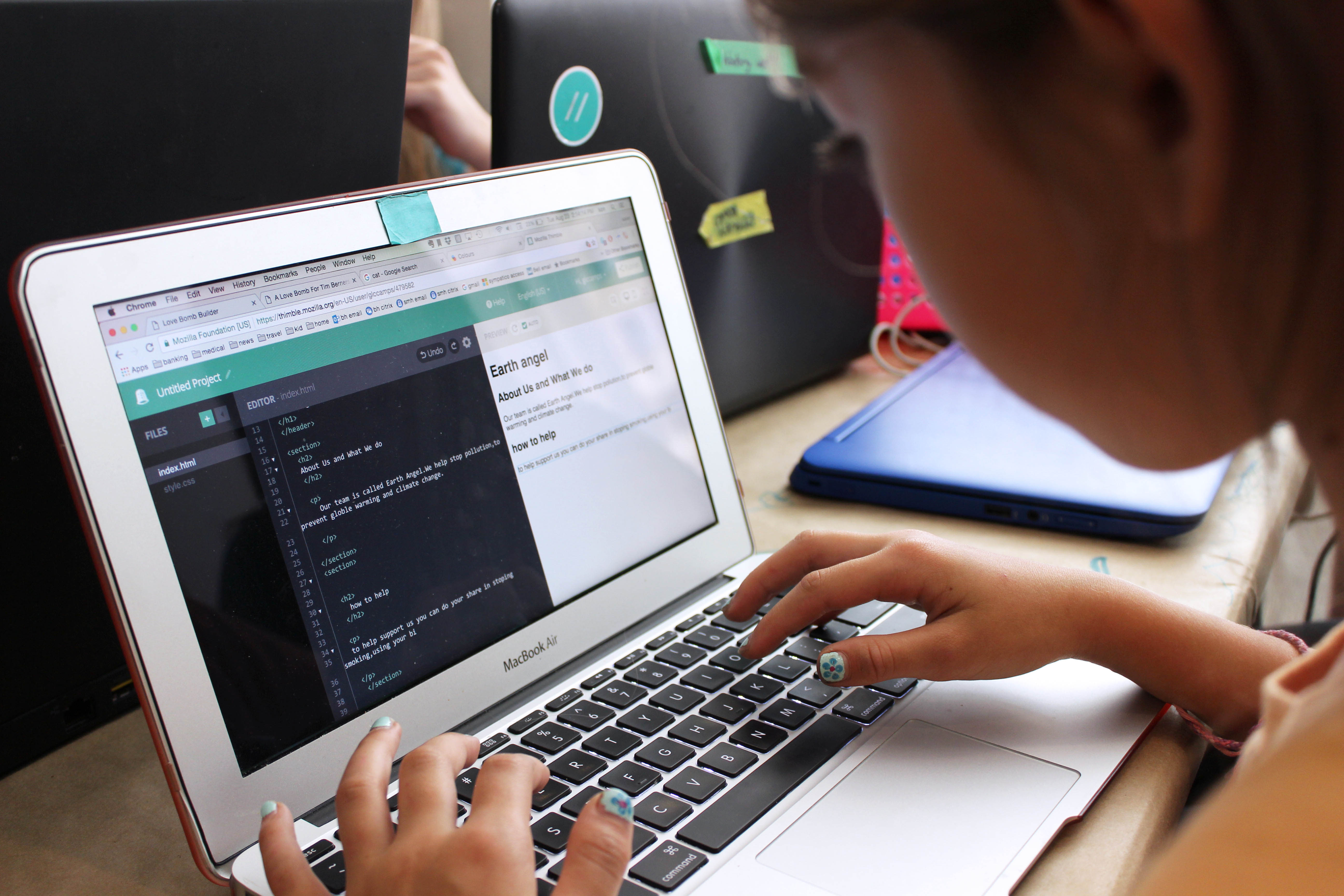There is no doubt that coding education has gained widespread attention over the last few years and quickly garnered an intense and widely shared enthusiasm from across all sectors around the world. But, unlike ‘another silly fad’ coding is here and it’s here to stay.
As an organization, we have spent the last six years providing tens of thousands of hands-on learning experiences for adults and youth across Canada to learn how to build and not just consume technology. Our goal is that our learners leave our programs with a deeper understanding of how computers work at a fundamental level, build entrepreneurial skills and have the confidence to thrive in our increasingly digital world. And, no, not every person that attends our programs becomes a professional coder, nor should they need or want to.

We also recognize that the pace of technology innovation might mean some of the specific coding languages we are teaching youth today become irrelevant in a future job market – but a vision for teaching coding that is solely focused on landing a coding job is surely missing the point. Teaching youth to code is about something much bigger than simply closing our looming ICT skills shortage – coding is an absolutely foundational skill in our increasingly digital world.
In school and at home, we teach our children about science, language arts and math – not so that every child becomes a scientist, author or mathematician but so they have a basic understanding of how the world works around them and a sense of agency to participate in that world. The skills developed through science, language arts and math provide a way for youth to experience, participate and express themselves in their communities, workplaces and lives. In a world where technology is everywhere and touches almost everything, I urge us to view coding in this way too. Coding is so much more than a language we learn, a set of instructions we give to a computer or the apps it can help us create. Coding, like math or science, provides our youth with foundational skills that extend and transcend subject matters.
As a basic definition, coding is an approach to solving problems with computers. In coding education circles coding is also generally understood as a tool to teach computational thinking. An explanation offered in A Pedagogical Framework for Computational Thinking, describes computational thinking as encompassing concepts and practices that are shared among other disciplines and is “an approach to solving problems, designing systems and understanding human behaviour that draws on concepts fundamental to computing”. A recent report by the Brookfield Institute investigating digital literacy in Canada supports the value of coding as an avenue to develop a broader skillset of logical thinking and problem solving. By teaching youth to code, we are helping to develop and foster their critical thinking skills and strategies for how to break big problems into smaller parts and to find manageable solutions. The youth in our programs, regardless of age, gender, race or socioeconomic status, want to solve problems facing their lives, their communities and the world and they want to bring their ideas to life. As we look to the future, there is undoubtedly a need for this entrepreneurial know-how. Coding is a crucial way of helping our youth build critical-thinking skills, resilience and confidence to take charge of technology, present and future.
If Canada is to realize its social and economic innovation ambitions, coding cannot be viewed as an extracurricular endeavour or a dismissed as a ‘fad’, but must be embedded even further in our schools, libraries and homes. Coding is an important learning tool, and when integrated with existing subjects like art, science, physical education and math, it can help provide youth context and relevance and help to connect coding to the real world. Take, for example, our recent Canada Learning Code Week – a national coding initiative celebrating Canada150. We developed several coding activities including one titled ‘When We Were Alone’ that explores Indigenous reconciliation and the history of residential schools in Canada first through a children’s book of the same name written by author David Robertson. Then, through an interactive, code-your-own story, the lesson provides youth an opportunity to express their own oral traditions and stories in a new digital form. An integrated curriculum that combines coding with other subjects has been shown to increase subject interest, engagement and retention and can also help youth, especially girls, see coding as a creative tool tapping into their own individual passions and interests.
As pioneers in this space we’re only just getting started. It is clear there is still lots of work to do to ensure Canadians understand the importance, value and future that coding knowledge can afford our country and everyone in it. There is even more work to be done to ensure that all Canadians – especially those that are historically underrepresented in tech fields are given an equal opportunity to participate in shaping that future. Luckily, we have a government that’s committed to making this happen, we have the generous support of many leading Canadian and multinational businesses, and the passion of thousands of educators and advocates who understand that coding is so much more than a skill for the 2%.
Coding will undoubtedly play an important role in equipping today’s youth with the skills to succeed in the future. And that future is bright, but it is up to all of us to ensure that all Canadian youth have the opportunity to build that future and for that to happen it means that code is here to stay.
